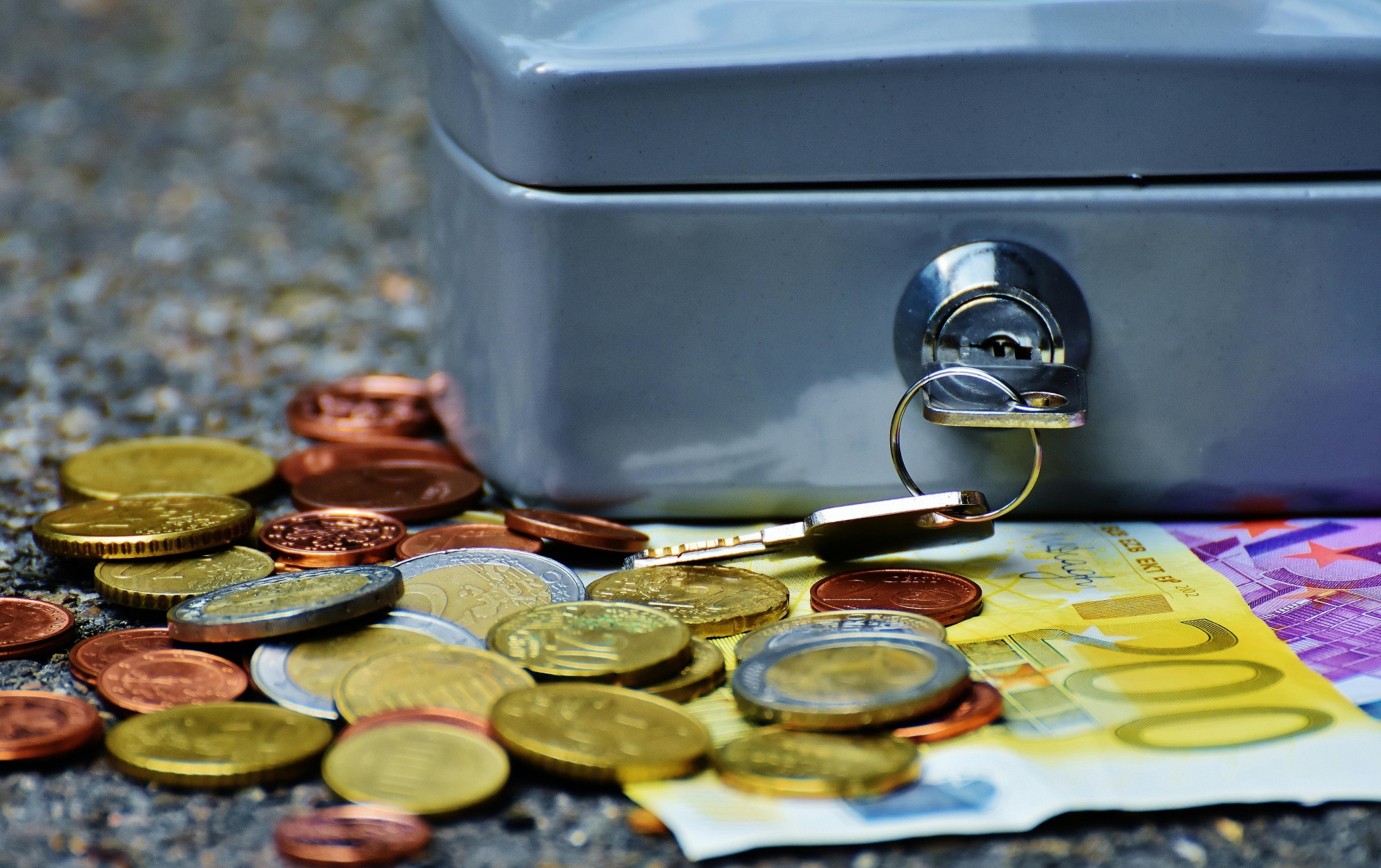Save
How do you teach a child the value of money?
The first steps to a child’s financial literacy begins at home, but it’s not always easy for parents to teach—especially since there is no guaranteed way of effective learning.
How do you teach a child the value of money?
The first steps to a child’s financial literacy begins at home, but it’s not always easy for parents to teach—especially since there is no guaranteed way of effective learning.

Learning about money is a lifelong lesson that can begin for a child as early as their pre-school years. At this age, kids are more receptive to learning, meaning parents can build a strong foundation at this time.
Parents should focus on three things when teaching kids about money: their own actions, development of financially literate behaviours as well as how to practically apply financial knowledge in various situations.
Be a lesson
One of the first steps to learning is through imitation, which means children could learn financial literacy by doing what their parents do.
Sometimes, children can also learn from the mistakes that their parents make, which is why the first way to teach financial literacy is to be a living lesson.

Show how valuable the money you work hard for is to the family and how each cent counts when it comes to maintaining your family’s lifestyle. If you’ve had actual bad experiences with mishandling money and coming up short, don’t hide the fact from them.
Rather, let them know how the experience helped you understand that money does not constantly flow to your pockets regardless of your status in life and that they should learn the same thing.
Of course, the most important lesson kids have to learn is that, while money is valuable and people use it to buy things, it should not be the basis for happiness.
Ensure you practice what you preach and make sure they see it.
Develop money smart behaviour
Financial literacy is a continuous learning process but things can be easier if, at a young age, kids already start developing smart behaviours when it comes to handling money.
Doing the following can influence children’s behaviour and can increase their financial literacy:
Help kids develop a critical mind
It is important that kids develop a critical mind, especially at a time when almost everything is in mass production and there are multiple choices for one type of item. What does this mean?
When at the grocery, have them compare the prices of different brands. Compare that store’s price with another store. Get them to understand that the price of the exact same product could be different depending on where they go. Get them to think critically by choosing which product to purchase and having them justify their choice.
Another good learning opportunity is when there is a sale on products you need. When opportunities like these arise, have the kids think about whether buying the items on sale is the better choice. Tell them what factors to consider when making a decision (i.e., expiration dates, product quality, etc.).
Allow them to ask questions because they will not be able to develop their financial literacy if they don’t understand the factors that affect finances.
Teach the merits of delayed versus instant gratification
Spoiling kids by caving in to their demands when they throw tantrums could stunt the development of their financially literacy.
Teach kids the advantages of delayed gratification over instant gratification so that they will be able to filter out their needs and work towards their wants.
Get them to understand that actions, even purchases, have consequences and that sacrificing short-term gratification could lead to better rewards in the future.
One way to do this is to have them save up for a toy or gadget they want instead of buying it for them outright. Have them do extra chores so they can earn for their purchase. You can even give matching contributions if they do their work well.
Then take them back to the store with their savings but have them look around first to confirm if they still want the same item or if something better has caught their interest.
If they answer the latter, it should serve as a teachable moment for you to discuss how their sacrifice got them a better toy or gadget because they waited and worked hard for it.
Turn it into a challenge
One can acquire as many skills as they want but nothing will happen if they don’t apply it. Challenge your kids’ financial literacy to ingrain these lessons in them so that it develops into moneysmart behaviour.
Find opportunities that will make them use the things they learn, such as helping you research and move your retirement savings into the most cost-effective super fund. The plus side to this is that they may get to learn about superannuation.
Practical lessons to teach
As you guide kids into developing moneysmart behaviour, they should also get involved with financial activities so they can understand money better. Get kids involved in the following:
- Budget planning
Ideally, your household should have a budget to pay for needs and other expenses so, even if your kids are still studying basic math, get them involved in the budgeting process.
Let them know how much the household earns and how much the bills and grocery budget are and have them suggest ways to minimise expenses. This may help them understand why creating and following a budget plan is important for the family. - Comparing products and spending wisely
This should be a lesson on placing value on quality above quantity when spending their hard-earned money — an application of the delayed versus instant gratification approach. - Bills payment: Cash versus debit versus credit
Teach your kids what makes cash, debit and credit different and try to avoid using credit cards to pay for purchases when they are with you.
The easiest way to get them to understand the value of money is to have your budget for spending in cash form and having them see the money that leaves your wallet.
This way, kids would see how much money you started with and how every payment decreases the amount you have—an amount you have to work hard for to earn on your next payday. - Importance of savings
Teach them the importance of having savings by not spending the leftover budget.
Display a piggy bank where they can see it and deposit a specific amount every payday. Better yet, prepare two piggy banks with one meant for savings and the other to be used to treat the family to something nice—like a nice family dinner or for summer vacation. - Advantages of debt aversion
Most of all, teach your kids to dislike debt. Tell them how, even if it can give instant gratification, debt could set them back financially for a longer period of time compared to if they had just saved up and paid in cash for a purchase.
Many ways to teach about money
There’s really no one-size-fits-all approach to teaching children about the value of money, but it is an important thing that they learn from their parents without the involvement of institutions, such as banks, that may have vested interest in their money.
It may be difficult at first, especially since parents would typically want to spoil their children, but giving them the gift of knowledge and proper skills to manage their money may help them avoid financial traps in the future.
The best part is that learning is not a one-way street—you will most likely learn a thing or two as you teach your child how to be financially literate.
Explore Nest Egg for more tips on building financial literacy.
About the author

About the author


How to budget
Help to Buy switches on in WA: What the shared‑equity rollout means for banks, brokers and builders
Western Australia has joined the federal Help to Buy program, flipping the switch on a new stream of first‑home demand. The shared‑equity model reshapes risk, margins and distribution for lenders and ...Read more

How to budget
Australia’s first-home buyer reset: how policy, rates and competition will shape the rebound
After a flat first half of 2025, first-home buyer (FHB) activity is set to lift—nudged by a five per cent deposit guarantee and the Reserve Bank’s first rate cut since 2020. But a rebound won’t be ...Read more

How to budget
Australians Seek Bargains to Stretch Christmas Budgets Amid Rising Costs
As the festive season approaches, Australians are preparing to spend more on Christmas gifts and festive feasts compared to previous years. However, despite larger budgets, many are still on the hunt ...Read more

How to budget
Australians grapple with stubborn cost of living in 2025
In a year marked by persistent financial strain, only a meagre 7% of Australians believe that the cost of living has improved, according to the 2025 Household Budget Barometer released by Compare the ...Read more

How to budget
How to take control amid rising electricity costs
Energy bills are increasing for almost nine in ten Australians, forcing many to think outside the box when it comes to keeping costs and electricity usage down. While some are resorting to showering ...Read more

How to budget
Aussies get savvy with energy hacks as costs surge
As energy costs continue to climb across Australia, a recent study commissioned by Zip Co (ASX: ZIP) reveals that 91% of Australians are actively seeking innovative ways to reduce their energy billsRead more

How to budget
The psychology behind saving: Understanding and overcoming common barriers
Saving money is a fundamental aspect of financial security, yet many people find it difficult to set aside a portion of their income regularly. Read more

How to budget
Smart saving tips for first home buyers in Australia
Purchasing your first home is a significant milestone, but the path to homeownership in Australia can seem daunting due to the high property prices and competitive market. However, with the right ...Read more

How to budget
Help to Buy switches on in WA: What the shared‑equity rollout means for banks, brokers and builders
Western Australia has joined the federal Help to Buy program, flipping the switch on a new stream of first‑home demand. The shared‑equity model reshapes risk, margins and distribution for lenders and ...Read more

How to budget
Australia’s first-home buyer reset: how policy, rates and competition will shape the rebound
After a flat first half of 2025, first-home buyer (FHB) activity is set to lift—nudged by a five per cent deposit guarantee and the Reserve Bank’s first rate cut since 2020. But a rebound won’t be ...Read more

How to budget
Australians Seek Bargains to Stretch Christmas Budgets Amid Rising Costs
As the festive season approaches, Australians are preparing to spend more on Christmas gifts and festive feasts compared to previous years. However, despite larger budgets, many are still on the hunt ...Read more

How to budget
Australians grapple with stubborn cost of living in 2025
In a year marked by persistent financial strain, only a meagre 7% of Australians believe that the cost of living has improved, according to the 2025 Household Budget Barometer released by Compare the ...Read more

How to budget
How to take control amid rising electricity costs
Energy bills are increasing for almost nine in ten Australians, forcing many to think outside the box when it comes to keeping costs and electricity usage down. While some are resorting to showering ...Read more

How to budget
Aussies get savvy with energy hacks as costs surge
As energy costs continue to climb across Australia, a recent study commissioned by Zip Co (ASX: ZIP) reveals that 91% of Australians are actively seeking innovative ways to reduce their energy billsRead more

How to budget
The psychology behind saving: Understanding and overcoming common barriers
Saving money is a fundamental aspect of financial security, yet many people find it difficult to set aside a portion of their income regularly. Read more

How to budget
Smart saving tips for first home buyers in Australia
Purchasing your first home is a significant milestone, but the path to homeownership in Australia can seem daunting due to the high property prices and competitive market. However, with the right ...Read more













